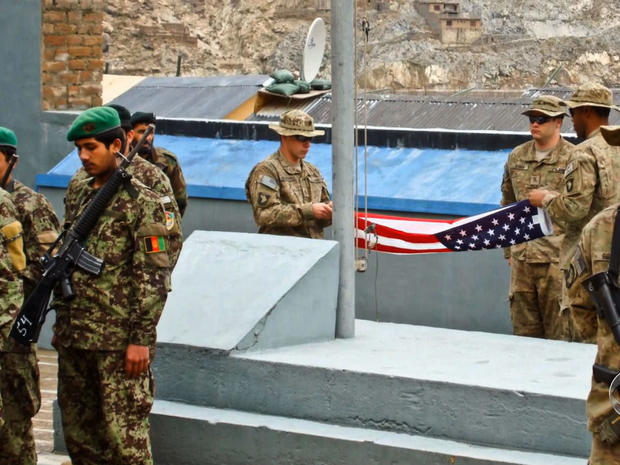Nangalam: A symbol of the Afghan war's troubles
Most Americans in Afghanistan are doing their best in a war that's now in its 11th year. Why has it taken this long?
CBS News correspondent Clarissa Ward found one reason in the Pech Valley. Americans lost their lives there building a base called Nangalam. When they tried to hand over their gains to the Afghan army, the base went to ruin.
This is one part of Afghanistan that America thought it could finally leave. But U.S. troops are back, trying once again to train their Afghan allies.
Army Major Guillermo Guillen, from Southern California, is frustrated.
"You're relying on us to do all your security for you. You need to be participating," Guillen told an Afghan counterpart.
On a recent patrol, some Afghan soldiers were not wearing helmets. One chatted on his cell phone.
"We're not going to be here forever, you need to take care of yourself," Guillen said.
The U.S. military left Nangalam base last February, handing over to Afghan forces. But within weeks, things went badly wrong.
Enemy forces returned to roam freely through the valley. The Afghan commander deserted. Hundreds of his soldiers followed.
"I believe there was some of (feeling of abandonment) amongst the (Afghan) soldiers. It's probably what led to some of their leadership leaving," Guillen said.
The Afghan forces that remained ransacked their own base.
All the electric wires have been pulled out. Anything of any value was taken. You can see the wiring hanging out of the light.
Just about everything else that could be moved was sold for cash.
Without American support, the Afghan army refused to resupply the base. The soldiers were living in filth.
For the U.S. military, it was an embarrassing example of what might happen when security is handed over to Afghan forces across the country, and so four months after leaving, a small group of U.S. troops was sent back in.
Today, American contractors are back on the base repairing the damage, with U.S. taxpayers footing the bill, again.
A new Afghan army unit has been brought in, with a new commander, Colonel Turab. U.S. officers have nicknamed him "Honest Abe."
And he was honest to a fault about the prospects for the Afghan army.
"It will take about 30 years" for the Afghan army to be ready, Turab said through a translator. "And if they are reformed and the corruption is removed, ten years."
"They understand what they're doing. They understand what's required. It's just getting them to do it without coalition support," Guillen said.
The U.S. exit strategy depends on them doing it without support. Not in 30 years, and not in ten. They have just two years before the vast majority of American forces are scheduled to leave the Pech Valley - and all of Afghanistan - for good.
